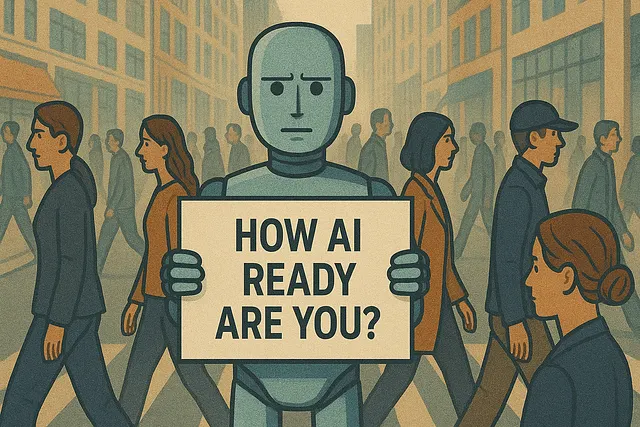AI is revolutionizing our lifestyles and work processes, but are we mentally prepared for its demands?
There’s an abundance of current discussions on AI. The prevailing narrative is:
“AI is faster”
“AI requires less human intervention”
“AI delivers instantly”
This simplicity is misleading as the reality is more complex.
The Productivity Dream vs. The Human Reality
The world rapidly embraces AI-first strategies. Companies are restructuring, cutting manual steps, and pursuing automation wherever feasible. On paper, it promises efficiency, scalability, and reduced costs. But the critical question remains: Are we mentally prepared for this transition?
While AI simplifies tasks, it introduces new challenges:
The uncertainty stress: relying on something potentially erroneous.
The accountability gap: humans are blamed when AI errs.
The mental fatigue: constant prompting, checking, and retraining.
The deadline squeeze: “If AI is quick, why isn’t the task done?”
When AI Hallucinates
AI can provide answers so confidently, it seems accurate even when incorrect. This is called an AI hallucination—false information presented convincingly. In such cases, who is responsible? The AI? The engineers? The prompt managers? Currently, the responsibility falls on the human involved, as AI neither assumes accountability nor acknowledges errors.
The Emotional Weight Nobody Measures
Managing AI errors is not just frustrating but exhausting. The human operator must:
1. Identify the error
2. Retrain or re-prompt
3. Hope for better outcomes
4. Repeat
It’s not simply using a tool; it’s overseeing a tool that never sleeps, never apologizes, and never learns exactly as desired. This can lead to burnout, not from increased work volume, but from repetitive tasks under the guise of “streamlined” processes.
So, How Do We Cope?
With impending AI adoption, we need mental and operational safeguards:
– Treat AI like a novice intern. Expect errors and thoroughly verify.
– Adjust deadlines. Speed in one phase doesn’t equate to process-wide acceleration.
– Advocate for AI literacy. Learn to manage failures, not just operations.
– Seek organizational support. Include AI-induced stress in mental health discussions.
– Demand transparency from AI developers regarding error rates and limitations.
The Final Question
As we rush to match AI’s rapid pace, we overlook the sustainability of AI-driven work. Ignoring this may result in an AI-exhausted workforce. The true cost of this oversight will manifest not in missed deadlines or errors, but in people silently burning out while it’s labeled as “PROGRESS.”

